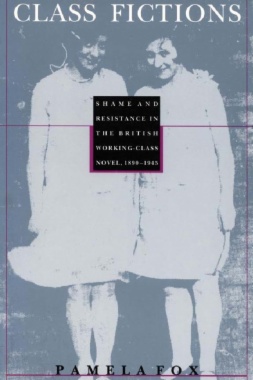Many recent discussions of working-class culture in literary and cultural studies have tended to present an oversimplified view of resistance. In this groundbreaking work, Pamela Fox offers a far more complex theory of working-class identity, particularly as reflected in British novels of the late nineteenth and early twentieth centuries. Through the concept of class shame, she produces a model of working-class subjectivity that understands resistance in a more accurate and useful way—as a complicated kind of refusal, directed at both dominated and dominant culture.
With a focus on certain classics in the working-class literary "canon," such as The Ragged Trousered Philanthropists and Love on the Dole, as well as lesser-known texts by working-class women, Fox uncovers the anxieties that underlie representations of class and consciousness. Shame repeatedly emerges as a powerful counterforce in these works, continually unsettling the surface narrative of protest to reveal an ambivalent relation toward the working-class identities the novels apparently champion.
Class Fictions offers an equally rigorous analysis of cultural studies itself, which has historically sought to defend and value the radical difference of working-class culture. Fox also brings to her analysis a strong feminist perspective that devotes considerable attention to the often overlooked role of gender in working-class fiction. She demonstrates that working-class novels not only expose master narratives of middle-class culture that must be resisted, but that they also reveal to us a need to create counter narratives or formulas of working-class life. In doing so, this book provides a more subtle sense of the role of resistance in working class culture. While of interest to scholars of Victorian and working-class fiction, Pamela Fox’s argument has far-reaching implications for the way literary and cultural studies will be defined and practiced.
- CONTENTS
- Acknowledgments
- Introduction Recovering the “Narrow Plot of Acquisitiveness and Desire”: A Methodology for Reading Working-Class Narrative
- 1 Rehabilitating Working-Class Cultural and Literary History: The Critical Agenda
- 2 The Ragged Trousered Philanthropists and After: Epistemologies of Class, Legacies of Resistance
- 3 On the “Borderland of Tears”: Reputation, Exposure, and the Public/Private Dynamic of Working-Class Culture
- 4 The “Revolt of the Gentle”: Romance and the Politics of Resistance in Working-Class Writing
- Afterword: Getting Their Own Back
- Notes
- Bibliography
- Index

